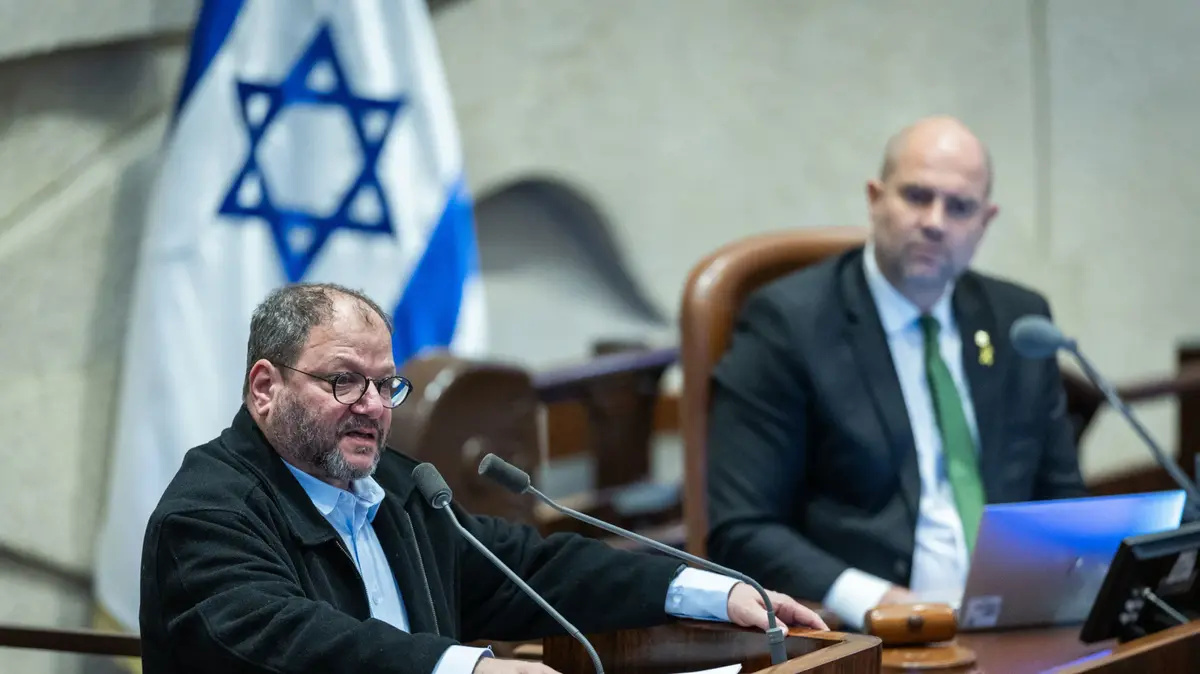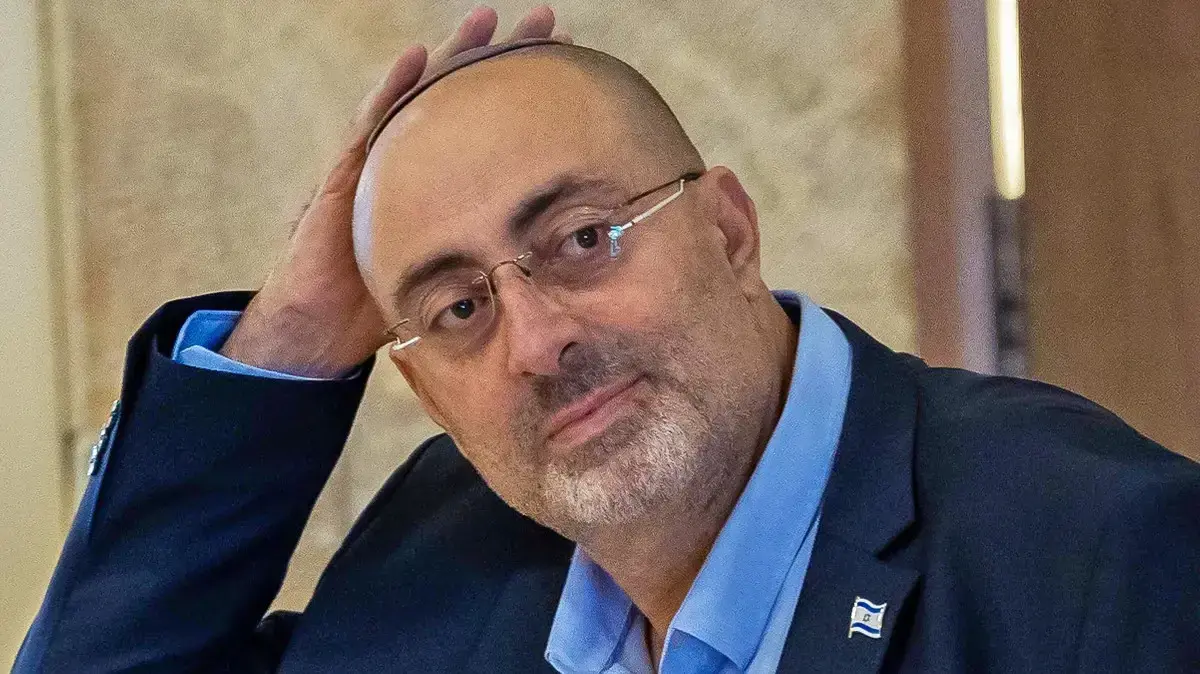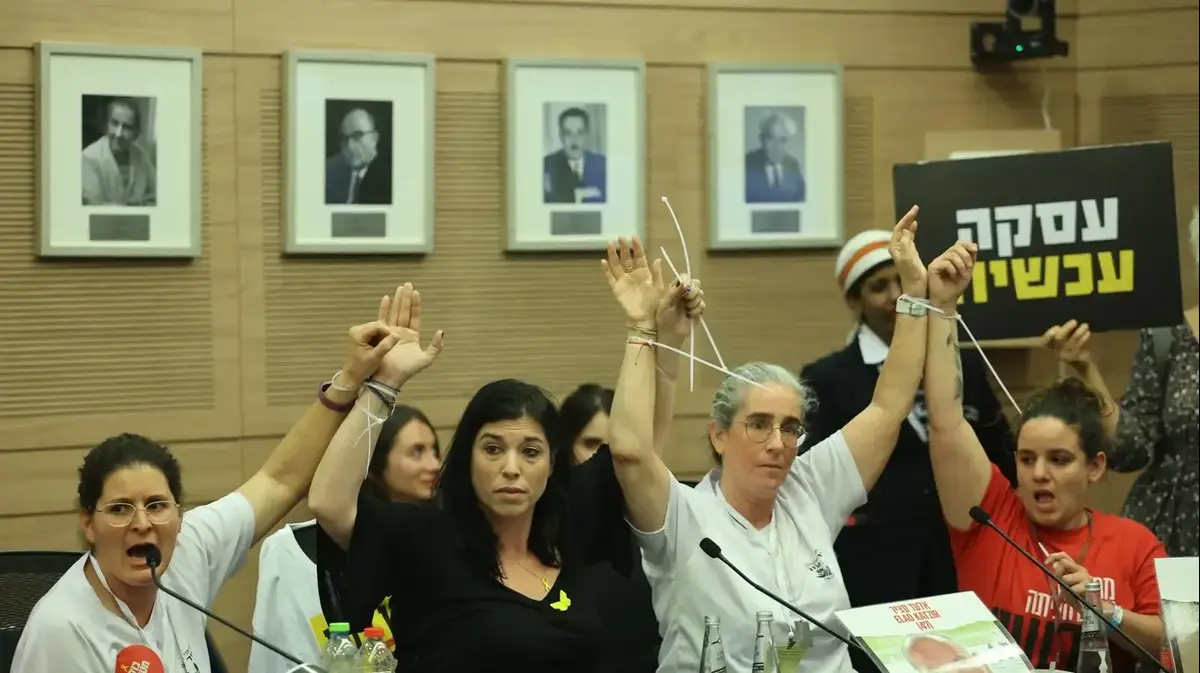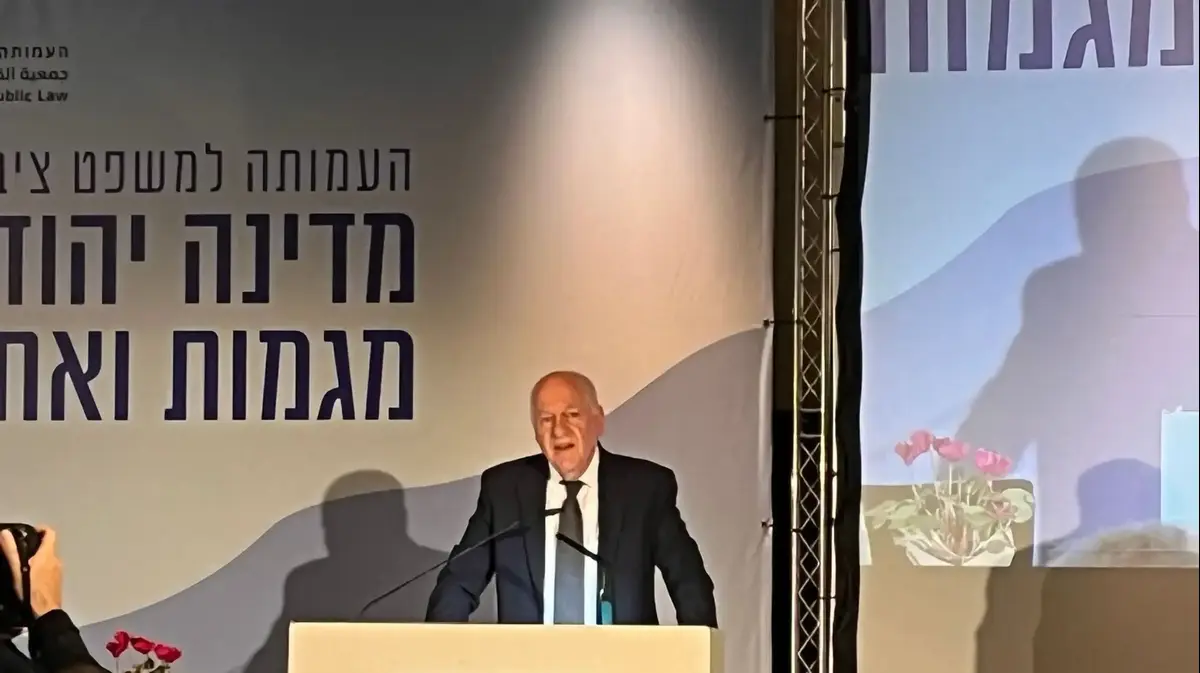"Suddenly my daughter is talking"
Dikla |
Mother of children on the autistic continuum
The stuck step: regulating the profession of behavior analysis
The bill, which is intended to regulate the profession of behavior analysis as a paramedical profession and the training and supervision of practitioners by the profession, was intended to be put to the vote in the first reading after preparatory work in the Health Committee.
This is another issue that will not be promoted soon, and the ones who will pay the price this time are the children diagnosed with autism and PPD.
Advocate Michael Zetz, Director of the Advancement of Rights and Government Relations at the United Nations, explains the importance of the profession: "The treatment improves their functioning and increases their chances of integrating into society, overcoming difficulties and changing patterns."
Dikla, Photo: Courtesy of those photographed
Dikla, a resident of Rishon Lezion and mother of 8-year-old Alon and 3-year-old Agam, both diagnosed on the continuum, explains why this profession is so critical: She did not know colors and numbers.
The gene is mostly based on a behavioral surgeon, it is the mainstay.
Thanks to the proper care that Lake received she is progressing very nicely today.
I felt that she had been pressed for a button that opened something for her. "She also says of her son Alon that" a huge change has taken place in him. "
"Women Are Not Forced To Work"
Udi Tene |
Father to baby
The step that gets stuck: Maternity leave for fathers for a fee
As part of the state budget preparations in the coming months, the Minister of Social Equality, the Minister of Economy and the Minister of Transportation have promoted a move that will allow paid maternity leave, for a period of four weeks, and not at the expense of maternity leave as is currently the case.
The move, which cost an estimated NIS 430 million a year and was backed by the Budget Division and the Minister of Finance after a budget source was found, was raised for discussions on the outline and wording, and was intended to enter the budget and vote on the Arrangements Law.
Now, after the fall of the government, the move is stalled.
Udi Tene, Photo: Courtesy of the photographers
Udi Tene, a strategic consultant, father of two sons and a daughter born about three weeks ago, says he was happy to take paid maternity leave.
"This is a very important line that puts in the right place the importance of both parents in caring for children. Joint parenting in the good sense of the term. This equality is welcome and will allow women who want it to return to work and not sacrifice their careers. Many women do not want to put the baby It's so small and you stay at home instead of going back to work. "
"What about my food security?"
Leah Klugman
72-year-old fired in Corona
The step that has stalled: raising the old-age pension
The amount of the monthly old-age pension ranges from NIS 1,596 to NIS 2,488.
The Minister of Social Equality, Meirav Cohen, acted during her tenure as Minister of Welfare, Minister of Finance and Social Security, for a significant increase in the old-age pension in Israel.
In recent months, the issue has been in very advanced discussions with the Treasury, but now, with the dissolution of the Knesset, this issue also remains out.
"The fact that this move was cut short just before it matured is very bad news for hundreds of thousands of senior citizens in Israel," Minister Cohen told Israel Today.
Leah Klugman, Photo: Yehoshua Yosef
Leah Klugman, almost 72 years old, lives in Tel Aviv.
From the age of 18 she worked and at the age of 62 she retired - but not really.
"I saw my pension and my eyes darkened. I realized I could not live with it and went out to work. I worked for ten years, up to the Corona, as a saleswoman in a lingerie store. I climbed ladders and unpacked crates. In the Corona I was fired and not hired back."
Leah's pension is NIS 1,200 a month.
Together with the old-age pension she receives from the National Insurance Institute, she is supported by an amount of NIS 3,389.
"Today I can not cool the house with an air conditioner. Why do I have to make an account at the supermarket whether to buy a pea or two? Not to mention meat, poultry and fish that I do not buy at all. What about food security?".
"Even me took two years to get a divorce
"
Former divorce
denied
One of the most painful issues in Israeli society is the issue of refusal to divorce and docking.
A bill promoted by the Dead End organization and MK Inbar Bezeq is intended to limit the time of the divorce proceedings in the rabbinical court and in fact to limit it in time, in order to prevent the effects of agunot women who wait years for divorce. The rabbi prefers to promote agreements between the spouses than to rule in a case where the husband refuses to give his wife a divorce. To stop the legislative process.
Hava, Photo: Oren Ben Hakon
Hava, 27, a resident of Beit Shemesh and the mother of two children, was married for two years and refused a divorce for two years.
Only about two months ago, she finally received the long-awaited divorce.
This happened only because her ex-husband was afraid of the sanctions that the rabbinical court would impose on him.
But many others do not have such luck.
"Even one like me, who has the support and backing of the establishment, had to wait two years," Hava shares.
"Three judges stood in front of me and told me 'we are powerless in front of this person.' This illustrates the problem of the system, that it has tools to act but it cannot."
"In a decade we will not be disturbed"
Emil and Aviva |
Holocaust survivors
The step that has stalled: Improving the medical committees for survivors
One of the bodies that makes the lives of Holocaust survivors in Israel very difficult is the medical committee whose role is to recognize disabilities so that Holocaust survivors can receive benefits, reliefs and various benefits from the Ministry of Finance, depending on the percentage of disability determined for them.
The medical committees are considered cumbersome, burdened with bureaucracy and often cause great heartache to the Holocaust survivors.
The Minister for Social Equality, Meirav Cohen, worked to promote reform on the issue - but following the dispersal of its future Knesset, Lot remained in the fog.
Emil and Aviva, Photo: Yossi Zeliger
Emil, 93, a Holocaust survivor from Hungary who immigrated to Israel in 1949, lives in the center of the country with his wife Aviva, also a Holocaust survivor from Hungary, 90. In a defeated and tired voice he describes the hardships he has had to go through for years To him the percentage of disability.
"I've been on a lot of committees and it's just malicious what's going on there. There's a worsening of my health. Every time I brought all the medical documents that testify to the worsening of my condition, I brought an expert who wrote that he did not deny that the aggravation was due to Nazi persecution." "Or they do not recognize the diseases I have that are the result of the persecution, despite all the medical documents I present. Where is the State of Israel? The State of Israel is trying to save money. I am among the elderly already. In ten years you will no longer have to worry about any of us."
"Dad Controlled The House By Force"
Bar Star |
Growing up under constant threat
the stalled move: the bill to prevent economic violence
In November 2021, Justice Minister Gideon Saar pledged to complete in the current session the bill detailing a range of remedies provided to victims of economic violence.
The main of which is: recognizing economic violence as a civil tort and providing an opportunity for victims of crime (almost always women) to claim compensation from those who harmed them.
Dr. Meirav Shmueli, a lawyer and director of change and legislation at the "Spirit of Women" organization that promotes the law, explains that "women who experience this common phenomenon are not aware that they are being violent and that they have something to do." Encountered opposition from MKs and right-wing organizations.
Bar Star, Photo: Lia Yaffe
Bar Starr, a parent counselor, lecturer and social entrepreneur who grew up in a home where there was economic violence, says: "Dad controlled the whole house and it included physical and economic violence."
When she was 10, and after the family was thrown into the street due to debts in the amount of NIS 2 million accumulated by the father, her mother turned to welfare and her father was sent to prison.
The court ordered the mother to pay the debts.
"My mother would clean five houses every day. I will not forget how my mother's lawyer told the judge that she signed checks under threats and beatings. The judge replied that it was irrelevant because the mother was an adult."
Were we wrong?
Fixed!
If you found an error in the article, we would love for you to share it with us









